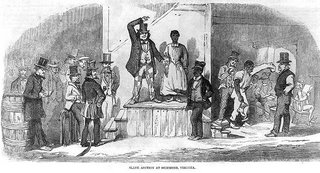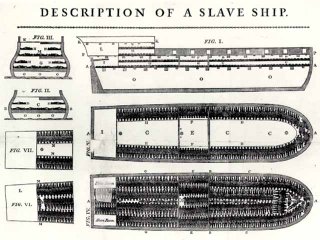Alcoa facing growing concerns over proposed Trinidad Smelter
US Aluminum Giant Alcoa is facing massive criticism over a proposed 340,000 metric ton smelter plant in Cap De Ville in the Southwestern part of the Caribbean Island of Trinidad. The country of Trinidad is one of the most densely populated places on earth with 593 persons per sq. mile and the Island already suffers from very high in pollution levels due to ongoing industrialization.
The 2005 Yale/Columbia Environmental Sustainability Index (ESI) showed Trinidad and Tobago as having the worst percentage of negative land impacts of 146 countries, yet Trinidad's government is continuing on a path toward massive industrialization of the Southwestern part of this Caribbean Island. Southwest Trinidad has so far been spared from heavy industrialization and is the part of the Island that has the longest and widest stretches of beaches on the Island.
The Cedros peninsula, now earmarked for the 1.5 billion dollar Alcoa smelter project also features pristine rainforests and wetlands and is one of the larger sources of drinking water on the Island. Actually, the site of the proposed Alcoa smelter is right on top of a major aquifer.
The proposed smelter plant, one of the largest in the world is scheduled to be located within a mile or less of the towns of Cap-de-Ville and Point Fortin, home to over 15,000 residents. The residents of the until now sleepy and peaceful peninsula are uniting and organizing protests on a regional and international level.
The Trinidad government seems determined to let Alcoa go ahead with their project at all cost and the hastily put together Environmental Clearance Applications and Environmental Impact Assessments for the project have sparked massive opposition from the local residents. The map of the proposed Alcoa site shows that the properties of over 200 residents may be taken over by the State for this venture displacing residents that are very unwilling to move.
The Alcoa smelter project has been shrouded in secrecy and while signings of major business agreements are usually publicized in the local newspapers complete with photo opportunities, the signing of the agreement for the 1.5 billion dollar Alcoa smelter, publicised by Alcoa worldwide, was done quietly and the local press was not even invited.
The citizens group Cedros Peninsula United managed to obtain a copy of Alcoa's application of Environmental Clearance which was jointly signed by Alcoa and the government's Energy Corporation which Alcoa also tried to keep secret and found it full of omissions, inaccuracies and outright false statements. A new application has just recently been filed by Alcoa which contains similar omissions, inaccuracies and misleading information.
"We are very worried about a company that promises us an 'environmentally friendly' smelter, yet is already lying about things like waste and pollution before the smelter is even built. How can we trust them," warns the citizens group. The local press totally ignored the findings in Alcoa's environmental clearance application but had no problem accepting three page ads by Alcoa promoting their smelter project.
The residents of Trinidad's Southwestern Peninsula have called for a public debate on the Alcoa smelter project but their calls have been completely ignored. As mentioned in a recent Sun-Sentinel article, there are serious concerns over the availability of Natural Gas reserves for this mega project. Even members of Trinidad's Parliament were left in the dark when inquiring about the state of gas reserves in the country. To this date, Alcoa has also not answered any questions regarding the disposal of the tons of hazardous waste the facility will produce. On an Island that small, environmental impact is a major concern.
Alcoa's record in Trinidad is already spotty. Alcoa operates a trans-shipment facility in the northern part of the Island in Carenage and have been under fire from citizens there for many years. A 1989 air-monitoring report by Cariri, commissioned by a Carenage citizens group, showed Alcoa exceeded US emissions standards for residential areas at three monitoring sites in Carenage on each of the five days of monitoring.
To make matters worse, the Trinidad government has also recently signed an agreement for a second aluminum smelter, not more than 8 miles away from the planned Alcoa smelter. The land for this 2,000 acre estate has already been cleared and hundreds of residents have been or will be displaced by this project. Two aluminum smelters in one of the smallest countries in the World. It's a recipe for disaster and the citizens of Trinidad are fighting a serious battle, not just with Alcoa but their own government that supports and sponsors Alcoas plans, modeled on Iceland's energy master plan which has also sparked major controversy, protests and law suits. The citizens of the Trinidad's Cedros Peninsula are hoping that once the facts of this project are made known to the world community, Alcoa may be swayed to look elsewhere to build their smelter.
Detailed Information on Alcoa's Trinidad Smelter project can be found on the world wide web at
www.nosmeltertnt.com







